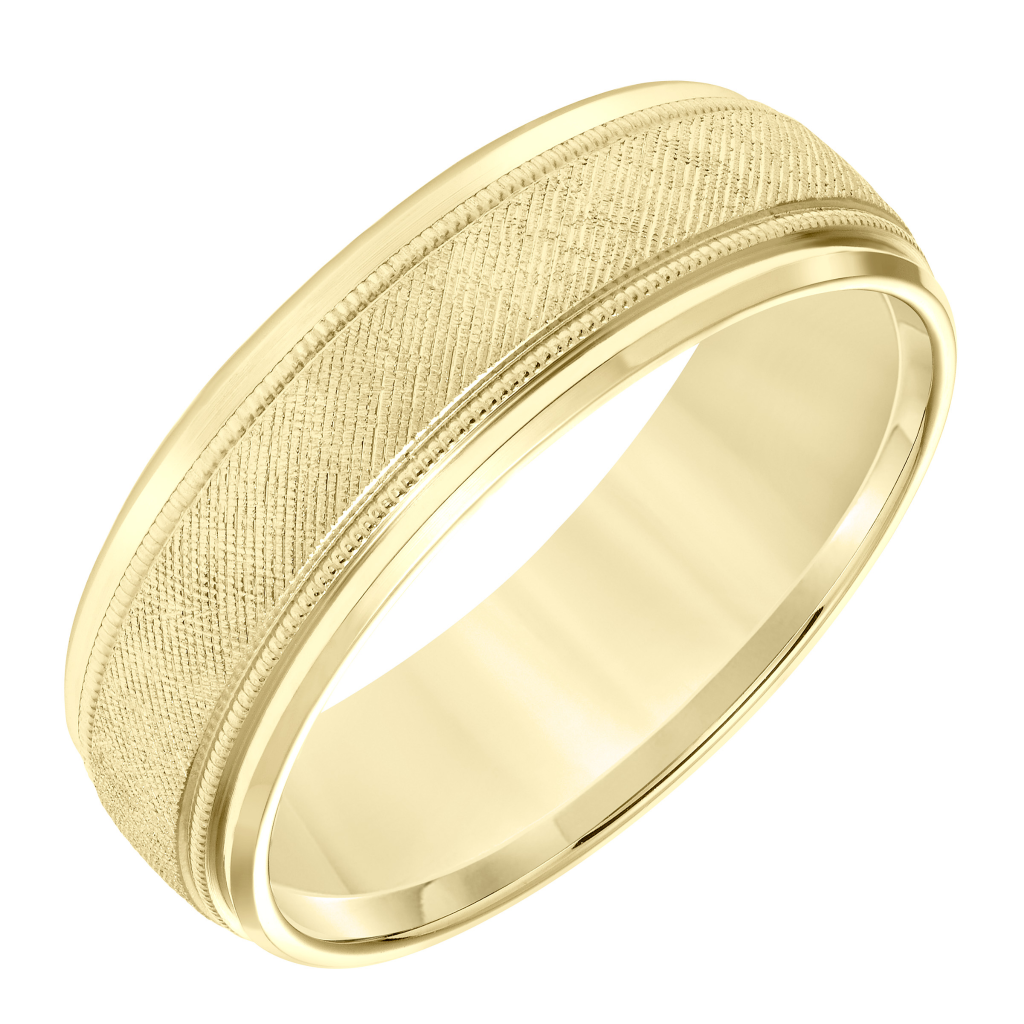A wedding band is the one piece of jewelry you’ll likely wear every single day. That means choosing the right wedding band metal is just as important as choosing the right style because durability, comfort, shine, and even skin sensitivity can all influence your decision. With so many options available, we understand it can feel overwhelming to know what’s best for you.
Rare Carat simplifies this process by offering a curated range of wedding bands crafted in metals that balance practicality, beauty, and long-term wear. Here’s a breakdown of the most common questions their buyers ask before purchasing their wedding ring about selecting the right wedding band metal.

What are the most durable metals for wedding rings?
Platinum leads the pack for durability. It’s dense, heavy, and naturally white, which means it resists wear and keeps its color without plating. Gold (in 14K or 18K) is also durable enough for everyday wear, though softer than platinum. Tungsten and titanium, while not traditional precious metals, are both extremely hard and scratch-resistant, making them appealing for couples who prioritize longevity above all.
What metals are best for daily-wear wedding bands?
For daily wear, platinum and gold remain the most popular choices because they balance durability with timeless aesthetics. Yellow gold is making a strong comeback in 2026, while rose gold adds a warm, romantic tone. Titanium is another good option for comfort owing to its lightweight yet strong composition, ideal for someone not used to wearing jewelry.
Which wedding band metals are most scratch-resistant for everyday wear?
Tungsten carbide is one of the most scratch-resistant options available, prized for keeping a smooth finish even with heavy use. Platinum, while more prone to developing a patina, doesn’t lose metal when scratched (it simply displaces), so it maintains volume over a lifetime. White gold, though durable, requires rhodium re-plating over time to maintain its scratch-free luster.
Is platinum a more durable wedding band metal than white gold?
Yes. Platinum is naturally stronger and denser than white gold, making it more durable for long-term wear. White gold, while sturdy, relies on rhodium plating to maintain its bright finish. Over time, re-plating may be necessary. Couples who want low-maintenance longevity usually lean toward platinum, while those who prefer a lighter metal with a slightly lower cost may prefer white gold.
Which wedding band metals retain their shine with minimal upkeep?
Polished platinum and high-karat yellow gold keep their shine well with routine cleaning. Rose gold also maintains its warm hue naturally. White gold requires occasional re-plating to preserve its shine, while brushed or matte finishes in any metal will show wear faster, needing refinishing if you want to restore their look.
What wedding band metal types are best for hypoallergenic and skin-friendly options?
Platinum is naturally hypoallergenic and ideal for sensitive skin. Titanium is also hypoallergenic and very lightweight, making it another safe choice. White gold is generally friendly but may cause irritation in people with nickel allergies, which is why platinum remains the most reliable option.
What finishes (matte, polished, or brushed) work best for long-lasting wedding band metals?

A polished finish is timeless and easiest to maintain. Brushed and matte finishes are modern and stylish but can show scratches over time. For daily wear, polished platinum or gold bands strike the best balance between style and longevity. Rare Carat’s wedding band collections allow buyers to preview multiple finishes in 360° view before making a decision.
Do certain wedding band metals pair better with specific diamond shapes or settings?
Yes. Platinum or white gold pairs beautifully with classic solitaire engagement rings, emphasizing the brilliance of round or princess-cut diamonds. Yellow gold enhances vintage styles and warm-tone pavé or halo designs. Rose gold complements elongated shapes like oval or pear diamonds, creating a romantic, modern aesthetic. Rare Carat’s gemologists can guide couples in matching metals and diamond settings for maximum harmony.
Which wedding band metals are trending or most popular in 2026?
Yellow gold is enjoying a major resurgence, aligning with broader vintage-inspired jewelry trends. Platinum remains a top choice for its prestige and durability, while rose gold continues to rise among couples looking for something warm and distinct. Two-tone bands, such as platinum with yellow gold, are also trending as couples look for versatility.
Are there eco-friendly or recycled wedding band metals available?
Yes. Many jewelers offer wedding bands made from recycled precious metals. Choosing recycled platinum or gold reduces environmental impact while maintaining the same durability and shine as newly mined metals. Eco-conscious couples often pair these with lab-grown diamonds for a more sustainable wedding set.
Shop Popular Lab-Grown Engagement Rings
What metals are most cost-effective for wedding rings?
Gold (particularly 14K yellow or white) is one of the most cost-effective precious metal options. Tungsten and titanium are also budget-friendly, though they lack the traditional prestige of platinum or gold. Couples who want the perfect balance between affordability and timeless appeal often go with 14K gold.
Are tungsten or titanium good wedding band metal alternatives to gold?

Absolutely. Tungsten is extremely hard and resistant to scratching, while titanium is both strong and lightweight. These metals are particularly popular among men’s bands and for couples who live highly active lifestyles. The trade-off: they can’t usually be resized, so accurate sizing is crucial. Rare Carat provides a handy ring size guide to help get it right the first time.
Which wedding band metal is best suited for active lifestyles or manual work?
For buyers who work with their hands daily or live active lives, tungsten, titanium, or platinum are the best options. Tungsten resists scratches, titanium offers comfort and lightness, and platinum withstands wear without losing metal. For maximum security, couples can also opt for comfort-fit designs that feel easier to wear during physical activity.
Making the Final Call Easier with Rare Carat
Choosing the perfect wedding band metal isn’t just about fashion; it’s about finding a balance of durability, comfort, cost, and long-term beauty. Rare Carat simplifies this journey by allowing shoppers to filter by metal type (platinum, yellow gold, white gold, rose gold, and more), compare finishes in 360° previews, and consult free gemologists for guidance on pairing bands with engagement rings.
Practical tools like the ring size guide, a one-year complimentary resizing policy (with reasonable exceptions for eternity bands) & 100% money-back guarantee add extra reassurance. With free insured shipping, easy returns, and lifetime warranty coverage, Rare Carat ensures that once you’ve chosen the metal that feels right, the buying process feels just as seamless.
In 2026, wedding band metals range from timeless platinum to modern tungsten, but what matters most is choosing with intent. With Rare Carat’s transparent options and expert support, couples can invest in bands that not only look stunning but also last a lifetime.
